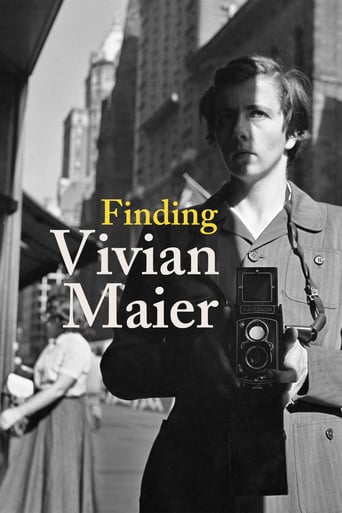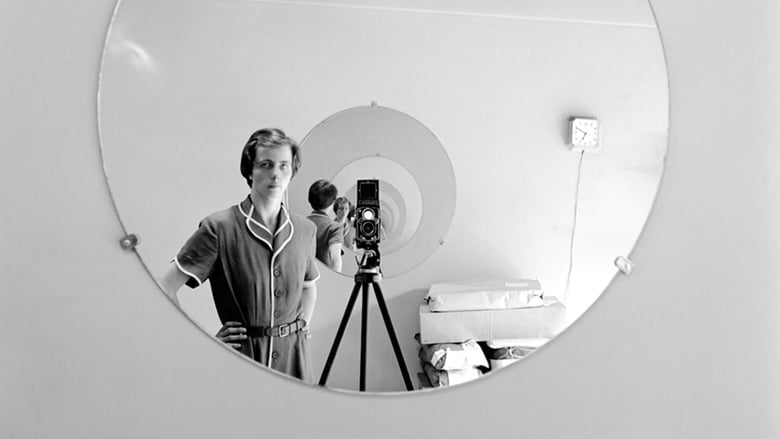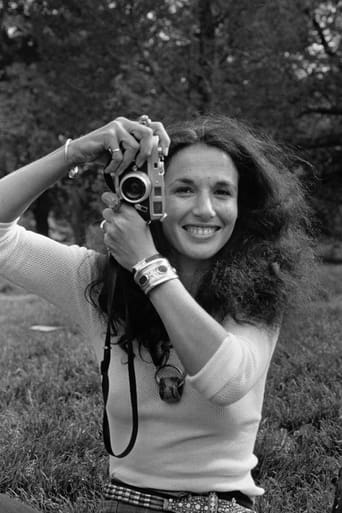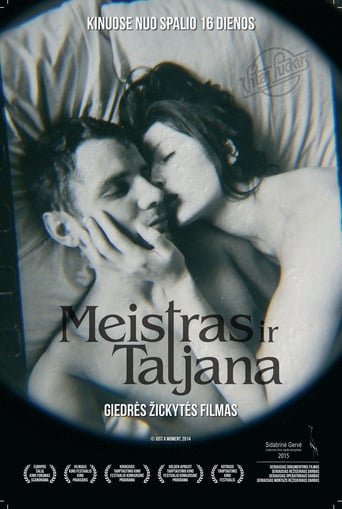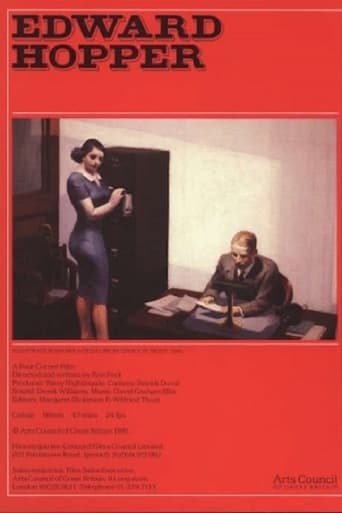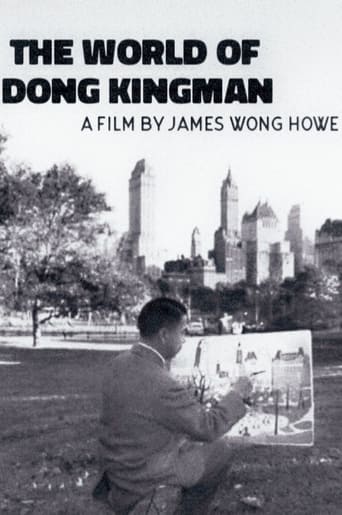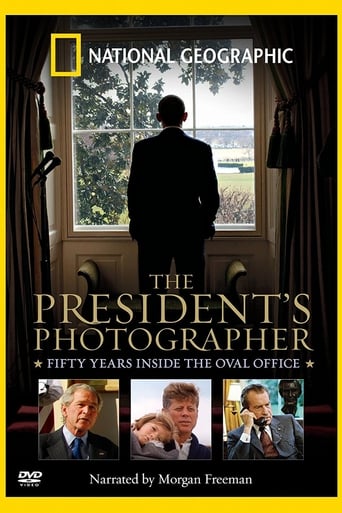Finding Vivian Maier (2014)
Vivian Maier's photos were seemingly destined for obscurity, lost among the clutter of the countless objects she'd collected throughout her life. Instead these images have shaken the world of street photography and irrevocably changed the life of the man who brought them to the public eye. This film brings to life the interesting turns and travails of the improbable saga of John Maloof's discovery of Vivian Maier, unravelling this mysterious tale through her documentary films, photographs, odd collections and personal accounts from the people that knew her. What started as a blog to show her work quickly became a viral sensation in the photography world. Photos destined for the trash heap now line gallery exhibitions, a forthcoming book and this documentary film.
Watch Trailer
Cast
Similar titles
Reviews
Undescribable Perfection
Purely Joyful Movie!
Story: It's very simple but honestly that is fine.
Through painfully honest and emotional moments, the movie becomes irresistibly relatable
The purpose of a documentary film is to explore, or uncover something. To open the audience's eyes to something they've never seen and to leave them walking out while looking at the world around them in a different way. Finding Vivian Maier does this perfectly.This film is an exploration of a lonely, misunderstood soul and what art can come from that loneliness. Vivian Maier was a nanny in Chicago in the 1970s who was known for being a bit of an odd-ball. She would do various things such as collect newspapers, wear men's shirts, carry a camera around and snap various pictures as she went about her day. She died alone in 2009 and it was only until a few years later that her ingeniously astounding photographs were discovered and brought into the public eye.Now, during the first half of this movie, the main focus is on her art, and how it was kept so under wraps for years before coming to light, and the exploration of trying to fit all the pieces together (i.e. interviewing relatives from France, interviewing children she had cared for, going through census records, etc.) to figure out who she was on the outside.During the second half of the movie, the attention is drawn less to who she was on the outside and more to who she was on the inside. What caused her eccentric behavior? Why didn't she share her photographs? What prompted her to take them in the first place? This is where the film turns from a mystery of uncovering art to a study of a life completely hidden.Pardon me for dividing the movie into halves, but that's how I feel this movie is set up. This movie is bringing up the age-old question: "If a tree falls in the forest and no one's around to hear it, does it still make a sound?" Now, in Finding Vivian Maier, what is the tree, and what does it mean for the tree to fall? Surely falling refers to the creation of art, but what is the tree referring to? In the first half of the film, the movie is focusing on Maier's long-hidden photographs and how long it took for them to be revealed, so is the tree a metaphor for art itself? Is the movie begging the question: "Does art stop existing the moment we stop noticing it?" But as the film progresses into its second half, we start to observe Vivian herself, and how she ended up as the odd old lady who lived and an old apartment. This is where the movie gives us the same question, except in an even harder approach: "Do people stop existing the moment we stop noticing them?"The movie's themes don't stop there. It also has some very compelling subtext about legacy. During one scene near the end, we get a shot of the apartment Maier last lived in, and the camera pans down the building to the front door of it, which has a window in which we can see the cameraman's reflection. This could easily be excused as a mishap on the cameraman's part, but what struck me about this is that Vivian used to point her camera at anything that reflected, in order to take a self-portrait. Now, this is the subtle brilliance of influence and legacy that this entire movie has to offer. This movie not only captures Maier's works, which captured the world around her the way she wanted to see it, but the movie itself also captures the world the way she wanted to see it. And that's the art of biographical storytelling. The movie itself has to tell the story the way that the person would want it to be told, and Finding Vivian Maier achieves it greatly.This documentary definitely perfects the genre. It opens the audience's eyes and leaves them looking at the world and the people around them a little differently. And most importantly, it does justice to its source material.
And, who, exactly, was Vivian Maier?... Well - That, my friends, is probably something which we'll never, ever know for sure.But, with that said - I certainly must give John Maloof (this documentary's co-writer/co-director) a helluva lot of credit for his thoughtful and extensive investigation into the identity of this very private, yet incredibly prolific, street-photographer who, in her lifetime, took an estimated 150,000 photos (most of which were never developed).It was only by a stroke of sheer luck that Maloof came across this surprise discovery of negatives amongst Vivian's possessions, which he had purchased at an auction (of her abandoned personal property) in 2007.Vivian (who worked as a nanny for various families for nearly 40 years) apparently never showed her photographic work to anybody. But thanks to Maloof's uncovering of Vivian's personal possessions, it is now realized that her photographic-eye was truly exceptional.For the most part, this documentary was quite an extraordinary experience for this viewer. But, alas, it lost itself some significant points due to there being just a little too much emphasis placed on determining whether Vivian was a kook, or not.In conclusion - Without ever achieving the recognition that she so rightly deserved in her lifetime, Vivian Maier died in 2009 (at the age of 83) in the state of complete poverty.
I was prepared to dislike this documentary of a dead photographer, but the photographs were so great that they drew me in. Then I cared about who she was. Clearly she was a very eccentric person, and possibly mentally ill, but there is no denying the power of her art. She may be the greatest photographic artist of the 20th century. For mainstream museums, such as New York's MOMA, to ignore her is baffling. They show the works of such ordinary talents as Cindy Sherman, while ignoring someone with true human insight, such as Vivian Maier. This reinforces to me the idea that the mainstream art scene is mostly political, and has little to do with actual merit. I have only the highest admiration for the photographs of Vivian Maier that I have seen on this documentary.
After all the hype surrounding this film (and the Oscar nomination), I thought there might be a reason for it. But unfortunately, I didn't get it. I didn't see much that impressed me about the subject, the filmmaker (who was way too present) or the so-called "mystery" of why we really need to have a history of every aspect of Vivian's life.So what if she was a Nanny? Big deal. So what if she never had a showing during her lifetime? So do most artists who die penniless. I think there is so much emphasis on how brilliant she was, that it was difficult to see what the pictures are all about: they are simple depictions of the world as seen through one woman's eyes. So therefore, it didn't matter one bit that she was not a recognized artist during her lifetime.The constant interruption of the images by the filmmaker emoting in front of the camera is grating, and the repeated shots of him developing and printing, is annoying to say the least. All of it went way too far in making him seem like he was some kind of a savior who gave the world a gift -- and ignores the fact that Vivian was the kind of artist who only wanted to practice her art without all the hoopla and celebrity that follows most of the pretentious egocentric photographers like Annie Leibowitz or Cindy Sherman -- where the personality of the photographer becomes more important than the images themselves. At least Vivian didn't proclaim how brilliant she was, and expect everyone to reward her.In all honesty, I failed to see any real innovation in terms of photography. Almost every image was almost like a direct analogy to Diane Arbus, who frankly did it better. Vivian was a good photographer, no question. But what bothers me is the ludicrous hype that has now grown up around the images -- and it all seems unwarranted. There is nothing about this documentary that suggests it should be nominated for an Oscar, and was, in my opinion, a waste of time.
